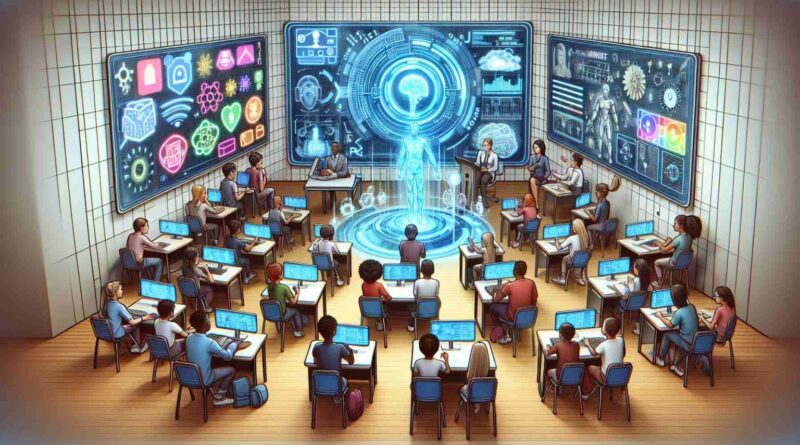The Impact of Artificial Intelligence in Education
Artificial Intelligence (AI) has revolutionized various aspects of our lives, including education. Amidst the rapidly changing technological landscape, AI has emerged as a key player in reshaping traditional learning methodologies.Leading experts in the field of AI are now actively promoting its integration into educational systems to enhance teaching and learning processes. Gone are the days when discussions on AI were limited to a select few; today, educators and researchers alike are exploring the vast potential that AI offers in transforming education. The Impact of Artificial Intelligence in Education.
One prominent figure driving this shift is a Professor at the University of Oviedo, specializing in Computer Science and AI. With a background in Machine Learning, the professor has been at the forefront of advocating for the adoption of AI in education.
As the boundaries of conventional education continue to expand, embracing AI promises to unlock unprecedented opportunities for personalized learning experiences and enhanced academic outcomes. Through the utilization of AI-powered tools and platforms, educators can tailor their teaching methods to cater to individual student needs, ultimately fostering a more inclusive and effective learning environment.
Revolutionizing Education with AI: Unveiling New Dimensions
In the realm of education, Artificial Intelligence (AI) has proven to be a transformative force, offering innovative solutions to age-old challenges. While the previous article outlined the growing influence of AI on education, there are intriguing facts that delve deeper into this dynamic landscape.
Exploring New Horizons:
Did you know that AI is not only revolutionizing classroom learning but also making significant strides in remote education? Virtual learning environments powered by AI algorithms are enabling students to access quality education from anywhere in the world, breaking down geographical barriers and expanding educational opportunities.
What ethical considerations arise from the integration of AI in education? One crucial question revolves around data privacy and security, as AI systems collect and analyze vast amounts of student data. Ensuring that sensitive information is protected and used ethically remains a pressing concern in this digital age.
Challenges and Controversies:
One of the primary challenges associated with AI in education is the potential for widening the existing educational disparities. While AI has the capacity to personalize learning experiences, there is a risk that students from underserved communities may not have equal access to advanced AI tools, perpetuating inequality in education.
Advantages and Disadvantages:
The advantages of incorporating AI in education are multifaceted, ranging from adaptive learning platforms that cater to individual student needs to predictive analytics that help identify at-risk students and provide timely interventions. However, a notable disadvantage lies in the dependence on AI systems, which may inadvertently diminish the role of human educators and interpersonal interactions in the learning process.
Unlocking the Future of Education:
As AI continues to evolve and innovate, the future of education holds immense possibilities for personalized, data-driven learning experiences. Bridging the digital divide, and leveraging AI as a tool for inclusive education, we can truly revolutionize the way knowledge is imparted and acquired.
Source: https://www.techedmagazine.com/category/news-by-industry/
Revolutionizing Education: The Impact of Artificial Intelligence

